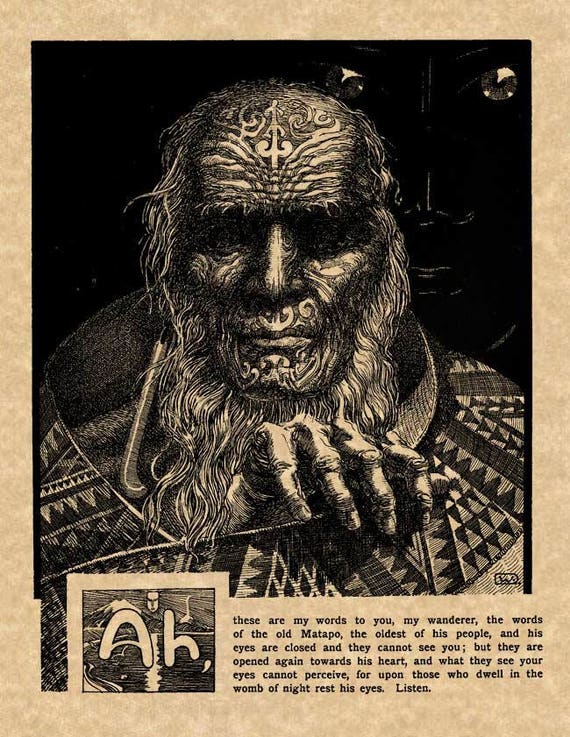Cultural Appropriation
Tonhunga
A Tonhunga skilled person, chosen expert, priest, healer - a person chosen by the agent of an atua and the tribe as a leader in a particular field because of signs indicating talent for a particular vocation. Those who functioned as priests were known as tohunga ahurewa. They mediated between the atua and the tribe, gave advice about economic activities, were experts in propitiating the atua with karakia and were experts in sacred lore, spiritual beliefs, traditions and genealogies of the tribe. Tohunga mākutu, or tohunga whaiwhaiā, specialised in the occult and casting evil spells. Those chosen to specialise in carving are tohunga whakairo, in tattooing are tohunga tā moko, in astrology are tohunga kōkōrangi, in composing songs are tohunga tito waiata, in canoe making are tohunga tārai waka, in rituals are tohunga karakia, etc. Tohunga were trained in a traditional whare wānanga or by another tohunga.
Toanga
Cultural Appropriation in New Zealand
| Grocer with Moko, 1995 |
Dick Frizzle is a well known and well respected artists however despite his paintings being over a decade old they still receive some heckles particularly in the inclusion of moari design elements and patterns. One of Frizzels most famous works being Grocer with a Moko the inclusion of the moari design lacks original intention that the moari people often place in ta moko and becomes nothing more than just a pattern. There are layers upon layers of symbol and meaning which inform the Maori world. For a Maori artist, much of the interest in the piece which uses traditional forms or concepts may be exploring and revealing or concealing such layers. That is why there are risks in treating the culture as some kind of pattern book, or at the other extreme as a way of inserting symbolic weight. This is an example of cultural appropriation however its more neutral rather than hostile or negative, however it isn't positive either.
Cultural appropriation In America
While I do not believe wearing a specific hairstyle should be worn only by one specific culture or ethnic group, their is an issue with how its represented. Often within media or upheld by white people (who hold the majority of political and social power), people of African decent are often dissuaded from embracing hairstyles that connect with their culture or just are their natural hairstyle such as Afros, dreads, cornrows and braids. Kids are kicked out of schools unless they change their natural hairstyle in some cases and the overall perception of these styles are overwhelmingly negative, however when a white women adopts these hairstyles she is praised and adored by society and media. An example of this is when Zendaya wore dreads to a red carpet event awful comments were made targeting her dreads. Kylie Jenner has been constantly appropriating black culture and while she does receive a fair amount of backlash comments about her hair being disgusting or as Giuliana Rancic would say "must smell like oils and weed" are never said.






Comments
Post a Comment